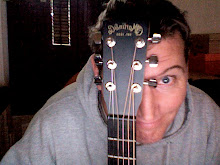Nice commentary on TomPaine.com about the mud-wrestling going on between CNN and Fox, and how at the end of the day it's doing a disservice to the news consumer.
Former "George" editor Richard Blow (and check out his piece on Michael Moore vs Ann Coulter) makes the point that was the stuff of much debate for the best part of the past year, when he says that in CNN's desperation to compete with Fox - even though CNN pulls in more ad revenue, it's losing in the ratings - the network that built its reputation on adventurous, exciting and intelligent journalism is being dragged further down into the mud; not least because it seems to be believing the negative vibes being thrown its way.
With the departure of Walter Isaacson, it remains to be seen whether the 'Chicken Noodle Network' still has the stomach for a fight based on journalistic integrity and important debate instead of tabloid hype and opinionated, screaming personalities.
Meanwhile, this side of the pond, the BBC looks set to cut a bunch of jobs in its newsgathering operation. Part of the cost-cutting will come, according to the memo, from the merger of Ceefax and the BBC's online set-up. As the Guardian points out, the cuts come at a time when the Beeb is re-vamping its main television news bulletins, as well as using the new BBC3 to reach out to the ever elusive younger audience demographic.
Comment
Former "George" editor Richard Blow (and check out his piece on Michael Moore vs Ann Coulter) makes the point that was the stuff of much debate for the best part of the past year, when he says that in CNN's desperation to compete with Fox - even though CNN pulls in more ad revenue, it's losing in the ratings - the network that built its reputation on adventurous, exciting and intelligent journalism is being dragged further down into the mud; not least because it seems to be believing the negative vibes being thrown its way.
With the departure of Walter Isaacson, it remains to be seen whether the 'Chicken Noodle Network' still has the stomach for a fight based on journalistic integrity and important debate instead of tabloid hype and opinionated, screaming personalities.
Meanwhile, this side of the pond, the BBC looks set to cut a bunch of jobs in its newsgathering operation. Part of the cost-cutting will come, according to the memo, from the merger of Ceefax and the BBC's online set-up. As the Guardian points out, the cuts come at a time when the Beeb is re-vamping its main television news bulletins, as well as using the new BBC3 to reach out to the ever elusive younger audience demographic.
Comment

